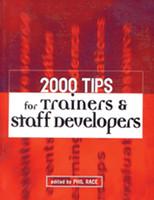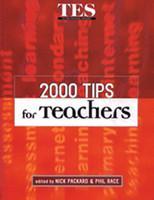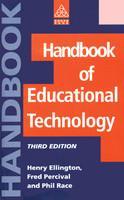

Download App

2000 Tips for Trainers & Staff Developers
-
ISBN
:
9788175541962
-
Publisher
:
Kogan Page Limited
-
Subject
:
Others
-
Binding
:
Paperback
-
Pages
:
300
-
Year
:
2008
₹
395.0

₹
395.0
Buy Now
Shipping charges are applicable for books below Rs. 101.0
View DetailsEstimated Shipping Time : 5-7 Business Days
View Details-
Description
CHAPTER 1: Planning And Preparation Planning And Preparation : What"s your training ethos?, Designing a new training programme, Setting training event objectives, Where can learning outcomes be useful to trainees?, Fine-tuning and communicating learning outcomes, Getting the content right, Timetabling your training event, Tips when using visiting trainers, Designing pre-event tasks, Behind the scenes, Refreshments, Getting your bits and bobs ready, Planning for distant venues, Tips for international trainers. Preparing And Giving Presentations : Do you really want to give presentations?, Preparing your first presentations, Giving presentations, Designing and using handouts, Using overhead projectors, Why use computer-aided presentations?, Some don"ts for presentation managers, Helping trainees to learn from computer-aided presentations. Creating Your Training Environment : Seating, tables and workspace, Using flipcharts yourself, Planning Post-its and flipcharts into group work, Using whiteboards or chalkboards, Using video machines, Maximizing learning pay-off- from video, Using audiotapes in your training. Getting Training Events Off To A Good Start : First impressions count, Introducing yourself, Mind your body language, Introducing participants, Working with mature trainees, Working with international trainees, Working with trainees with special needs, Gathering and using trainees" expectations, Maximizing learning pay-off, Establishing ground rules, Following up pre-event tasks, Brainstorming. Keeping The Show Going : Maximize "learning-by-doing", Avoiding alienation, Addressing conflict in group work, Handling difficult questions, Working with difficult participants, Gender issues, Coping with the unexpected, Developing participants" creativity, Working one to one, Helping participants to make sense of things, Using role-plays, Ringing the changes, Filling five minutes to coffee, End with a bang, not a whimper. Looking After Yourself : Time management, Workload management, Stress management, Working well with colleagues, Keeping up to date. CHAPTER 2: Group-Based Training Setting Up Groups, And Getting Them Going : Preparing participants for group work, Ways of forming groups, Group size considerations, Getting groups started, Ice-breakers - some ideas. Training In Groups : Helping participants to think about their learning, Group learning means learning-by-doing, Group learning means learning through feedback, Make the most of learning from mistakes, Helping participants to develop their motivation, Needing to learn can be enough, Harnessing participants" motivation, Post-it exercise on how participants learn, Behaviours of a good leader, Group learning includes following, Benefits of group learning, Benefits for trainees themselves, Benefits for trainers and learning facilitators, Benefits for employers (or future employers) of trainees, Benefits for training organizations and institutions. Groups (And Trainers) Behavin" Badly! : Group member behaviours that damage group work, Group facilitator behaviours that can damage group work. CHAPTER 3 Resource-Based Training Rationale, Benefits And Choices : What are the characteristics of resource-based learning?, What sorts of flexibility are there?, What lends itself to flexible learning, Which trainees are particularly helped?, Benefits for trainees, Benefits for trainers, Benefits for employers and managers, Benefits for training providers, Selecting flexible learning materials, How will they work?, Is the content right?, A quality checklist for flexible learning materials, Choosing and using computer-based learning resources, Adopt, adapt or start from scratch, Planning how to adopt, Planning how to adapt. Creating Flexible Learning Materials : Writing new flexible learning materials, Tone and style for open learning, Writing self-assessment questions, Writing multiple-choice questions, Writing feedback responses to multiple-choice questions, Writing open-ended questions and responses, Writing an introduction that works, Finishing well - reviews and summaries, Writing study guides. CHAPTER 4 Computer-Based Training Getting Into Computers Yourself : Organizing your workspace, Health and safety, Panic page (technophobia), Learning to use a new program, Where to find help, Printing, Maintenance, Computing on the move, Writing on the move, Security. Helping Trainees To Learn With Computers : Expressing intended learning outcomes, Bringing trainees round to learning from a machine, Helping trainees to learn-by-doing using computers, Getting trainees used to working with mice and keys, Language, visuals and numbers - international dimensions, Using computers to give feedback to trainees, Interrogating multimedia for training, Helping trainees to work together with computers, Setting out computers in your training room, Now you see it, now it"s gone!. Online Training : Making effective use of e-mail, Helping trainees to get started with e-mail, Giving trainees feedback using e-mail and computer conferencing, Thinking about using computer conferencing for training, Getting a computer conference going, Using the Internet for training, Information retrieval from the Internet, Helping trainees to learn from the Internet. Computers And Your Stress Levels! : Getting there early and setting up, What to do ifthere"s a power cut, Replanning your session, Coping with technophobes, Coping with technophiles, Looking after yourself when travelling, Gadgets, leads and grommets, Finding out what they"ve got at their end, Finding out what you can take elsewhere. Jargon Busting Or..."It;s All Geek To Me!" : Computing glossary. CHAPTER 5 Evaluating Your Training Obtaining Feedback - And Developing Your Forgettery!, First Thoughts On Questionnaires, Some Problems With Questionnaires, Some Kinds Of Structured Questions, Some Ideas For Open Questions, Some Ways Of Using Questionnaires, Feedback From Interviews With Trainees, Feedback From Groups Of Trainees, Following Up After A Training Event, More Ways Of Getting Feedback! Replanning Your Training Event.












 395.0
395.0






 776.0
776.0






